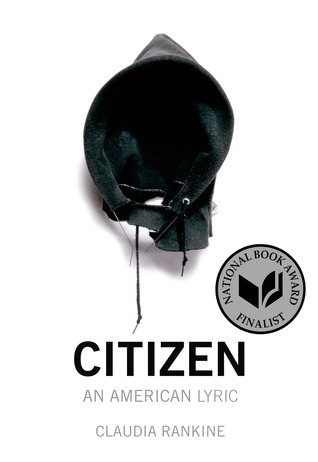What do you think?
Rate this book


169 pages, Paperback
First published October 7, 2014
At the end of a brief phone conversation, you tell the manager you are speaking with that you will come by his office to sign the form. When you arrive and announce yourself, he blurts out, I didn’t know you were black!
I didn’t mean to say that, he then says.
Aloud, you say.
What? He asks.
You didn’t mean say that aloud.
Your transaction goes swiftly after that.
And you are not the guy and still you fit the description because there is always the guy fitting the description.This, and the line ‘you can’t drive yourself sane’ repeat like a mantra during the events of handcuffing and questioning, the repetition effectively used to harness the feeling of utter frustration spiraling to the brink of disaster if one cannot hold them in as the situation would surely create.
I feel most colored when I am thrown against a sharp white backgroundRankine places this beside an account of William’s at London’s All English Club match where a three-second celebratory dance was broadcast on news medias as ‘a crip-walk….What Serena did was akin to cracking a tasteless, X-rated joke inside a church,’ an incident that she was heavily fined for and suspended. Rankine’s exploration of the ‘black body’ against the white dominated background is made most evident by the extraordinary choice of cover art: a black hood underlined by black text against a solid white background. The image is sure to recall the Trayvon Martin murder, though the art used is actually David Hammon’s In the Hood from 1993. The saying about history repeating itself if we fail to learn from it may be echoing in the back of your head about now.
Sometimes "I" is supposed to hold what is not there until it is. Then what is comes apart the closer you are to it.Rankine's words embody the conundrum that is Rachel Dolezal: it is the difference between her "I" and her "what is".
And yes, the inaudible spreads across state lines.
Its call backing away from the face of America.
Bloodshot eyes calling on America
that can't look forward for being called back.
America turned loose on America—

In line at the drugstore it's finally your turn, and then it's not as he walks in front of you and puts his things on the counter. The cashier says, Sir, she was next. When he turns to you he is truly surprised.
Oh my God, I didn't see you.
You must be in a hurry, you offer.
No, no, no, I really didn't see you.
At the end of a brief conversation, you tell the manager you are speaking with that you will come by the office to sign the form. When you arrive and announce yourself, he blurts out, I didn't know you were black!
I didn't mean to say that, he then says.
Aloud, you say.
What? he asks.
You didn't mean to say that aloud.
You transaction goes swiftly after that.
"...a friend once told you there exists the medical term- John Henryism- for people exposed to stresses stemming from racism. They achieve themselves to death trying to dodge the buildup of erasure."
"because white men can't
police their imagination
black people are dying"
because white men can'tWritten in a sharp and commanding tone, Claudia Rankine interrogates whiteness. By showcasing the constant micro-aggressions Black people face in life and the media, Claudia Rankine never fails to demand the attention of her white audience as well. I admire that quality of her work since more often than not (judging from what I have read) white people (oddly enough) are not held accountable. When discussing racism and race relations, most authors claim racism to be the problem of Black people only. They ask themselves why Black people are treated differently, how Black people behave in public spaces, what Black people encounter and face, what the history of Black people in any given country is. All of these are vital questions but more often than not, we forgot that racism is also the problem of white people.
police their imagination
black men are dying